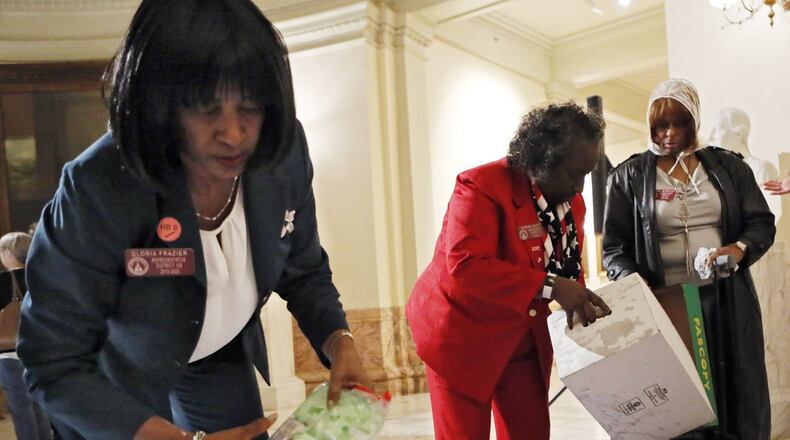In a first, Georgia lawmakers set aside money in next year’s $27.5 billion state budget to provide free menstrual pads and tampons to low-income women and girls.
Lawmakers allocated $1.5 million in the 2020 budget, which begins July 1, that will go to schools and community centers in low-income areas across the state.
House Speaker Pro Tem Jan Jones negotiated with budget writers to include the money in the spending plan after she moved earlier this year to sideline a proposal to lift the state's 4 percent tax on menstrual products.
Jones, a Milton Republican, said allocating $1 million to the Georgia Department of Education more directly addresses the need of young girls missing school because their family doesn’t have the money to purchase menstrual pads or tampons.
State Rep. Kim Schofield, D-Atlanta, said she and other Democrats sought to remove the state's sales tax on menstrual products to ease the burden of taxing women who struggle to afford basic necessities.
“I’m elated that recognition is going to be given to the kids that need it most,” Schofield said. “This is a gap that the state has graciously decided to fill.”
A spokeswoman with the Georgia Department of Education said they are working to create a grant program to determine the best way to distribute the money during the next school year.
An additional $500,000 will go to the state’s county health departments to provide menstrual products to low-income women. Officials at the Department of Public Health also were working on establishing guidelines for the money to be distributed.
While the $1.5 million allocated for menstrual products is one-time money and not guaranteed to be included in future state budgets, both Jones and Schofield said they are hopeful it will become a recurring expenditure.
For the past two legislative sessions, Georgia Democratic lawmakers have attempted to remove the tax on period products but efforts have gone nowhere.
According to an estimate from the state Department of Audits and Accounts, waiving the tax on menstrual products would decrease state revenue by about $9 million in 2020. The department estimated that women and girls between the ages of 10 and 54 spend about $63 each year on menstrual products.
By the end of last year, 10 states had specifically exempted menstrual products from sales taxes.
Schofield called the money in the state budget a good first step, but she said she still hopes the state will waive the tax on a product that is a necessity for many women and girls.
“Yes, let’s address this basic issue for students so they can have what they need so it doesn’t disrupt learning,” she said. “But for adults, we need to take the tax off, just plain and simple.”
About the Author
Keep Reading
The Latest
Featured




